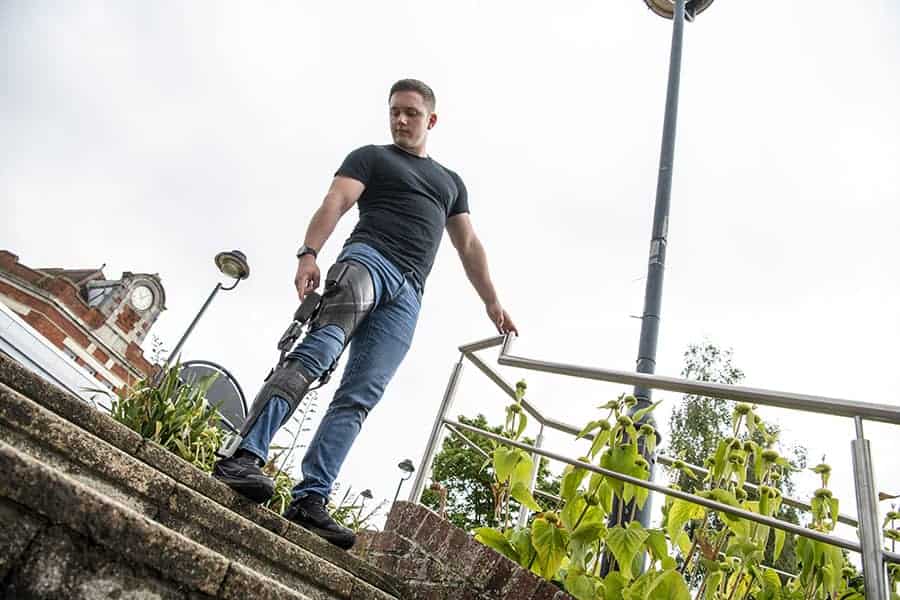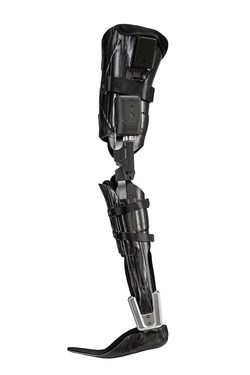Blatchford launches intelligent lower limb orthotic device with user-controlled mobility modes
Prosthetic technology manufacturer Blatchford, a supplier of rehabilitation services to the NHS, has launched Tectus, an intelligent orthotic device that is designed to enable people with partial lower limb paralysis to walk more easily, naturally, and comfortably with increased confidence and safety.
Tectus uses Blatchford’s proprietary Performance Response Technology (PRT) and microprocessor-controlled technology to mimic the natural function of the knee joint.
The device attaches to a custom-made knee-ankle-foot orthosis (KAFO) and features a unique but complex system of spring, hydraulic, and sensor technology, allowing wearers to replicate a more natural gait cycle.
Crucial to this ‘biomimicry’ is Tectus’ ’spring assist’ feature, according to Blatchford, which uses an adjustable control to ensure the leg fully extends in a timely manner during the swing phase of walking.
At 660g, Tectus is unique for its slim and lightweight design, the manufacturer states, providing increased comfort, which reduces muscle fatigue and energy expenditure. The modular design allows for comfortable and flexible positioning of the device, allowing the practitioner to bespoke fit any wearer, irrelevant of thigh shape or size.
Blatchford CEO, Paul Roberts, said: “Tectus is the first of many products Blatchford will be bringing to market which is focused on the patient as an individual and helping them get the best out of life.
“We’re embarking on a series of launches which will accelerate the use of our technology to maximise the human impact of orthotics and prosthetics.”
Blatchford says that Tectus wearers can walk faster, for longer, and with less pain and reduced trips and falls. The assistive technology has five activity modes, which makes everyday activities easier, like prolonged standing, descending stairs, tackling uneven terrain, walking at varying speeds, and controlled smooth sitting.
An additional training mode is also included to help practitioners set up and configure the brace.
Emma Scowen, Product Manager at Blatchford, added: “With the launch of Tectus, Blatchford is moving into a new market where the options are currently very limited for wearers.
“Stance control products are functional, but they don’t give people the freedom to fully embrace daily life. While other microprocessor KAFOs can be considered heavy and bulky, Tectus has been created to be as minimally unobtrusive and flexible as possible, enabling more comfort and freedom.
“We’ve taken our world-leading technology in prosthetics and applied it to orthotics, creating a truly life-changing product that can make a difference to so many people globally.”
In addition, Tectus allows users to switch between mobility modes on the actual module via a digital display or using a discreet handheld remote control. Battery status, step count, and safety warnings are all visible quickly. Tectus has an 18-hour battery life and the ability to charge from 0 to 100 percent in two hours.
Founded in 1890, Blatchford is a manufacturer of prosthetic technology, bespoke seating solutions and orthotic devices.
During the COVID-19 crisis, Blatchford, along with several other leading Wheelchair Services Providers, formed part of a new wheelchair group.




